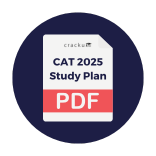Read the following paragraph and answer the question that follows:
An accurate measure of drug efficacy would require comparing the response of patients taking it with that of patients taking placebos; the drug effect could then be calculated by subtracting the placebo response from the overall response, much as a deli-counter worker subtracts the weight of the container to determine how much lobster salad you’re getting. In the last half of the 1950s, this calculus gave rise to a new way to evaluate drugs: the double-blind, placebo-controlled clinical trial, in which neither patient nor clinician knew who was getting the active drug and who the placebo.
Which of the options is a wrong answer to this Question How does a double-blind ensure a better trial of a new drug?
From the passage, it is clear the that double-blind, placebo-controlled clinical trial is unbiased, gives no chance for the clinician to choose patients nor does the patient know if he is getting the drug or the placebo and moreover it reflects the calculus exemplified by the deli-counter episode. In no way does this trial increase the overall efficiency of the drug. So the correct answer is A.
Create a FREE account and get:
- All Quant Formulas and shortcuts PDF
- 15 XAT previous papers with solutions PDF
- XAT Trial Classes for FREE




